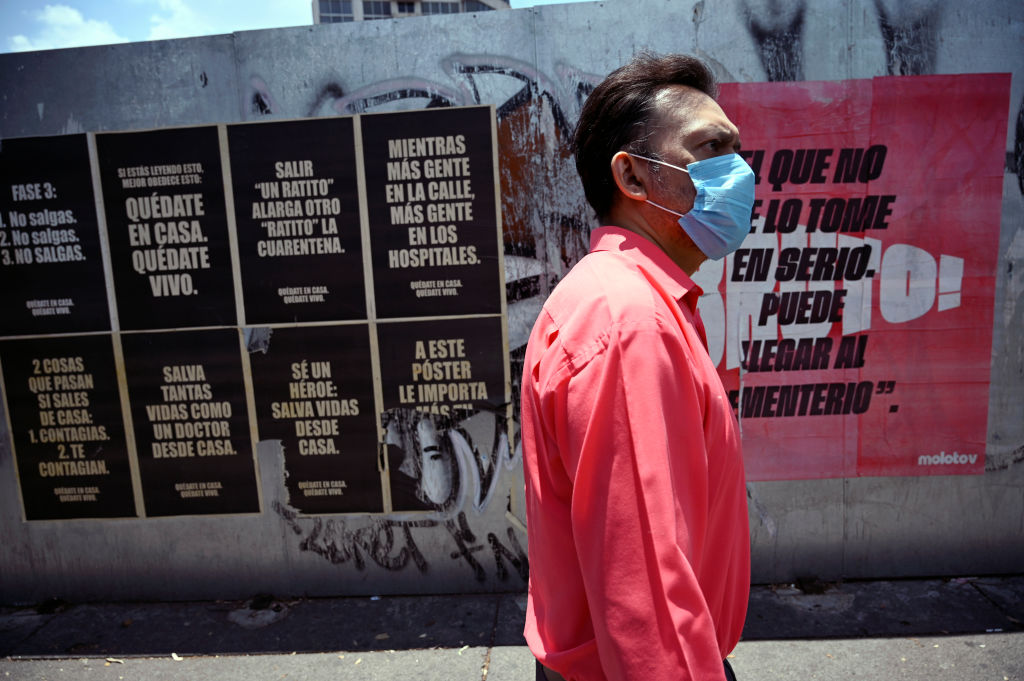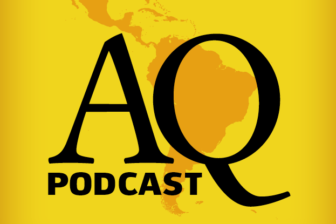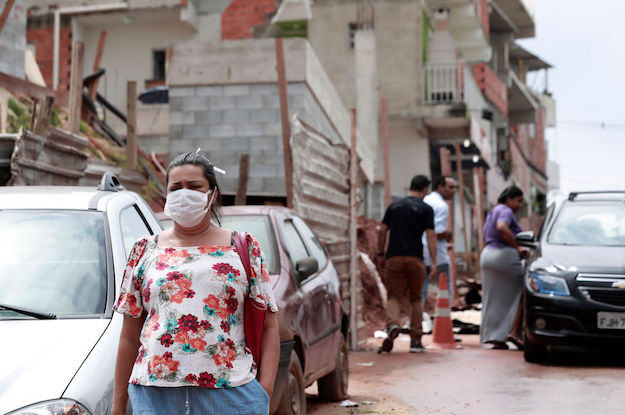MEXICO CITY – The president of Mexico, Andrés Manuel López Obrador, has argued that the coronavirus crisis “fits like a glove.” He never clarified what he meant by that, but the pandemic came at just the right time to provide yet another excuse for the failures of his administration. Only mirages do not last – much less when they involve millions of unemployed people with no source of income or support.
The easy part is blaming something rather as unfathomable as this virus for the deepening of a recession that started a year ago and for the ever-growing political rift provoked and accelerated. The question is what comes next. The more complicated part dwells in addressing the tough structural issues that lie at the core of the president’s presidential bid, like poverty, corruption and low rates of economic growth, all of which were the centerpiece of his campaign promises.
The current recession poses a peculiar challenge for a president with fixed and unchanging ideas and the inability to adjust to a radically altered scenario like a global pandemic. One of those is López Obrador’s conviction that Mexico cannot incur a fiscal deficit for fear of provoking a financial crisis. History supports that belief, for every time the country has spent beyond its means it ended in a major crisis. The problem today, though, is that Mexico is immersed in a deep crisis that nobody can blame on the administration, but for which the president has no answer other than to stay the course – a strategy that had already led to recession long before the virus struck.
López Obrador has a very clear vision of where he wants Mexico to be at the end of his term, but he lacks a plan to get there. His deeply held belief that Mexico erred its way when it began to liberalize and reform the economy in the 1980s is key. From his perspective, those reforms eliminated the factors that made it possible for the economy to grow at a high and steady pace and for society to be orderly and with no violence. The nostalgia for the 1960s and 1970s frames his view of the world and every action he has taken since assuming office has been oriented towards recreating the formidable presidency of that era.
Hence, he has swiftly proceeded to eliminate or neutralize checks on executive authority (like the entities charged with regulating energy), weakening the Supreme Court, subordinating economic decisions to political fiat, and strengthening the sources of wealth of that era, namely oil. His project is not ideologically driven: López Obrador means to recreate an era that may have worked well due to the circumstances, both domestic and international, decades ago but that have long ceased to be functional. And now, as the president tries to centralize and exert control over everything, he increasingly faces the opposite: the more he controls, the more things fall apart.
Complicating the picture is the nature of the coalition that López Obrador assembled to win the presidency, namely his Morena party, which includes groups from the extreme-left to the extreme-right. Morena incorporated former guerrillas, members of both PRI and PAN parties, dissident unions, the remnants of the communist party, Trotskyites, small businesses and youth organizations, plus iconic figures from all corners of the political spectrum. The result was a formidable coalition with no structure or organizing principle, whose only unifying principle is López Obrador himself. Morena’s supermajority allows the president to manipulate Congress at his pleasure. Many see Morena as a revolutionary movement that wants to undo the existing socio-economic foundation of Mexico, and they are certainly right, but in practice it functions more as a collection of agendas with disparate interests rather than an organized party.
Since 2016, with U.S. President Donald Trump’s systematic attacks on NAFTA, the key factor in Mexico’s relative economic success of the past three decades, new investment projects had already started to die down. And recovery is unlikely while economic decisions continue to be subordinated to political power, a point where AMLO has actually delivered: the cancellation of a new Mexico City airport, the annulment of a permit for a brewery already two-thirds built, coupled with permanent attacks on “the rich” and private investors. While Mexico is ideally placed to benefit from Trump’s trade war against China, it is unlikely it will harvest any benefits because of the uncertainty the administration keeps nurturing.
Mexicans are in for a ride. The most optimistic forecast for economic performance in 2020 show a contraction of 7%. The most optimistic forecasts for next year show growth of 2% – a two year net contraction of 5%. In the absence of new investment and of spending power from a battered population, the economy will not improve anytime soon.
That does not mean Mexicans are simply lying down. Governors are calling for a renegotiation of the “federal pact,” where the main feature is the way tax monies are distributed among states and the federal government. Civil society is also active: ever more civic organizations are developing solutions to everyday issues; large private sector organizations took the initiative to contract loans with the Inter-American Development Bank to support small firms badly affected by the recession. Social activism, though still far from ideal, is breaking with the historical mold. Anything could happen.
The government’s margin to maneuver is much more limited than the president seems to believe, and it is not obvious that society is ready to become the steadying force that Mexico’s future demands and requires, but the opportunity is exceptional. What is more certain is that four more years of institutional destruction like the one fostered by the president may bring Mexico back to the Stone Age.








